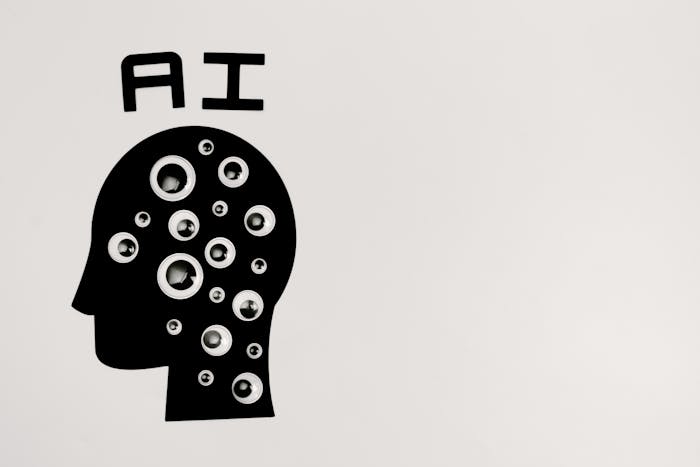Financial audits have historically been a source of stress for accounting teams the world over. You have to painstakingly review financial documents, look for discrepancies, and ensure your organization meets all filing requirements, all while avoiding any regulatory missteps.
Audits will always be important. However, the way that financial leaders go about them has changed, thanks to the integration of artificial intelligence (AI). Here’s everything you need to know about this exciting and long-overdue revolution.
How AI Fits Into Your Auditing Workflow
AI features advanced algorithms and machine learning capabilities that can process vast amounts of data quickly and accurately. Artificial intelligence can analyze complex datasets and detect patterns faster than a human team. It’s also incredibly effective at pinpointing anomalies.
Making Your Auditing Process Better
There are lots of ways that businesses are using AI to improve their auditing processes. One of the biggest value propositions of artificial intelligence lies in its ability to automate tedious tasks. Auditors can focus on more strategic activities while the algorithm does the legwork of analyzing datasets.
The best tools will highlight areas that require further investigation. Your accounting team won’t be bogged down with tedious analytics tasks. They will be able to focus their efforts on digging into the numbers and figuring out what’s amiss.
Artificial intelligence also allows your team to break away from the periodic auditing process. The months that pass between audits allow minor discrepancies to become major ones. These festering mistakes lead to an increased risk for your organization.
While you’ll still need to conduct quarterly or annual audits, artificial intelligence can make these processes easier by providing real-time financial monitoring. Continuous oversight helps identify and address issues as they arise rather than allowing them to grow.
Cutting Back on Human Mistakes
AI algorithms are also exceptional at conducting risk assessments. They can detect financial data errors, whether a simple calculation mistake or a more complex discrepancy. AI can identify and correct errors with high accuracy while reducing the need for manual reworking.
AI ensures consistency and standardization in your auditing process. By using predefined rules and algorithms, the technology can apply uniform standards across different datasets. Uniformity eliminates the variability that can occur with human auditors.
Artificial intelligence may also be able to alleviate one of your biggest burdens: fraud detection. AI can analyze patterns and behaviors to detect anomalies that might indicate fraudulent activities. Algorithms can identify unusual transaction patterns or discrepancies in financial statements and alert your team right away.
Creating Better Reports Faster
Artificial intelligence streamlines data collection and report generation. Automating these routine tasks reduces the time and effort required to complete an audit. Your team can use these capabilities to deliver better reports faster.
Automating repetitive tasks allows your team to optimize its resource allocation processes. Human auditors can tackle more complex and value-added tasks, improving overall productivity. Resource optimization not only enhances the efficiency of the audit process but also contributes to better utilization of human talent.
AI technologies also provide the leadership team with more timely and relevant data. They can use these insights to engage in strategic decision-making while accounting for important variables and trends. Supporting your C-suite’s decision-making processes will also position finance as a strategic partner, not merely a number-crunching entity.
What’s Next for Your Finance Team?
The integration of artificial intelligence in financial audits has kicked off a race to modernize all accounting processes. Here are a few ways that your team can get ready for the future of financial management:
Invest in Upskilling
Equipping your team with fancy new tools can help them perform better, provided they know how to use them, of course. You’ll need to train your staff on AI tech and increase their understanding of the software’s capabilities. Confident employees will embrace change, not shy away from it.
Prioritize Collaboration, Not Replacement
The future of financial audits lies in the collaboration between humans and AI. This technology is not intended to replace your workforce. Explore ways to use AI as a force multiplier.
Keep Compliance Concerns Front and Center
Regulatory bodies are evolving to address the implications of artificial intelligence. Your firm must stay apprised of the latest regulatory requirements and ensure your AI-driven audit processes comply with these standards.
Want More Insights About AI and Financial Audits?
AI-powered financial audits are here to stay, and that bodes well for your entire accounting team. Leaning into artificial intelligence-powered auditing tools can help your team perform audits without anxiety.
There are plenty of great resources out there to help you dive deeper into the world of AI audits, including full panel discussions, blogs, webinars, and more. Take advantage of these thought-leadership resources and find inspiring ways to incorporate AI audits into your workflows, improve efficiency, and get more done.
Additional Resources
Audit Readiness: Six Ways to Approach Assurance without Breaking the Bank
6 Ways to Improve Your Audit Readiness
Improving the Audit Process: How Technology Fits In
Full Audit or Financial Review? Balancing Effort and Assurance




